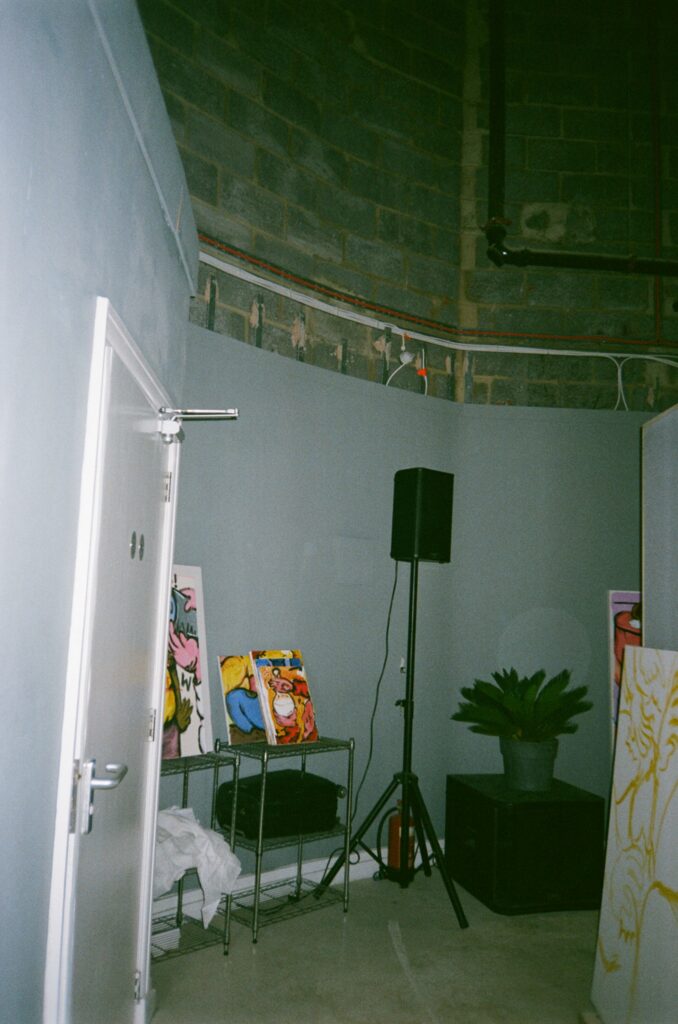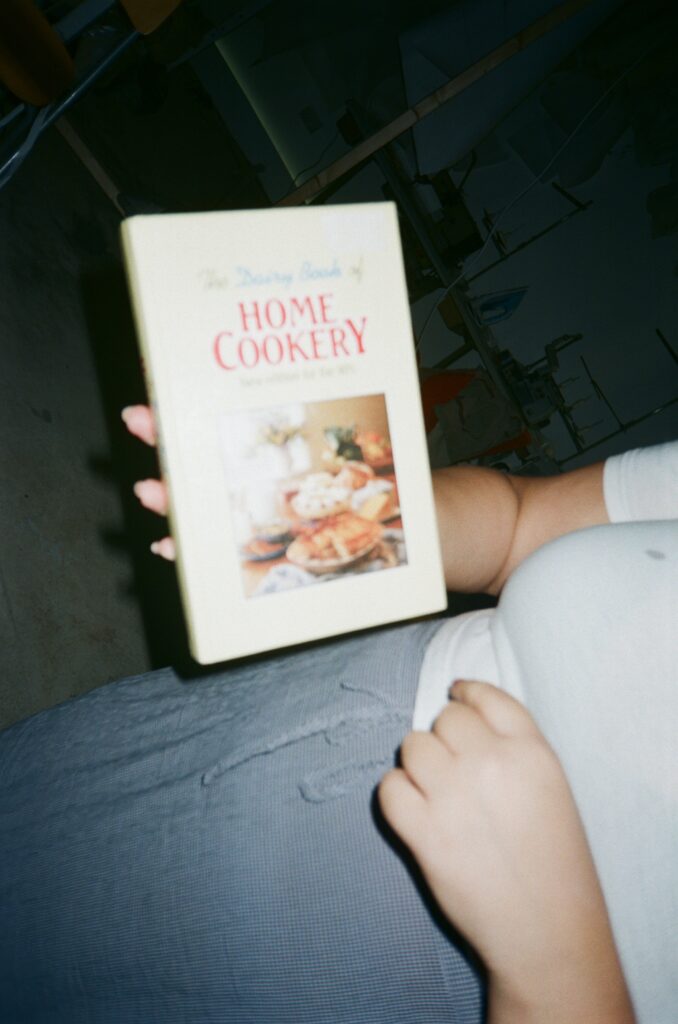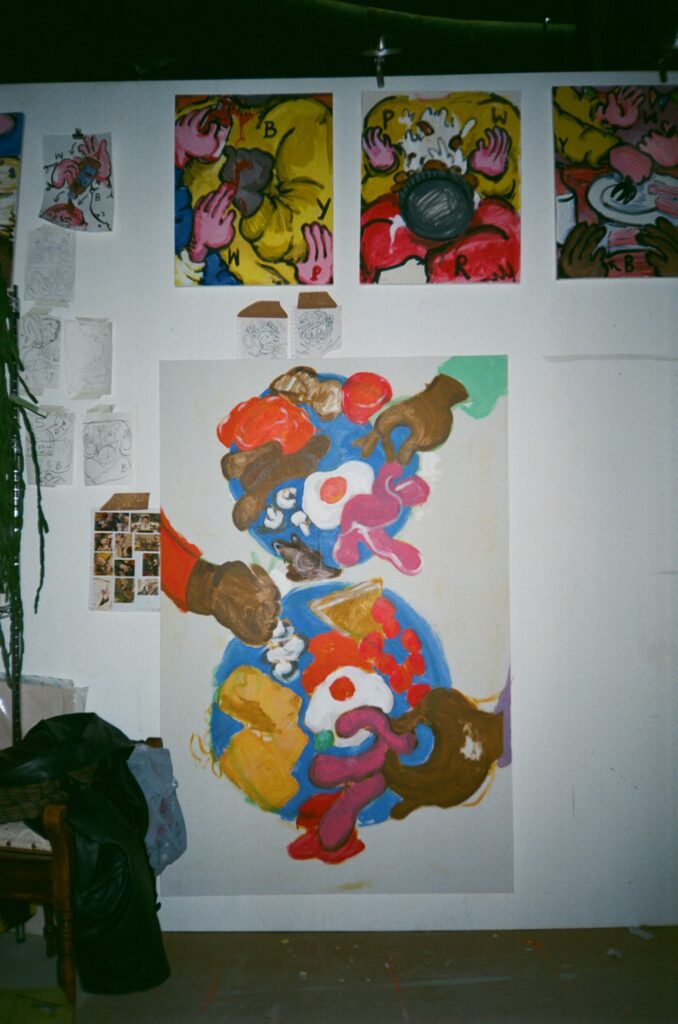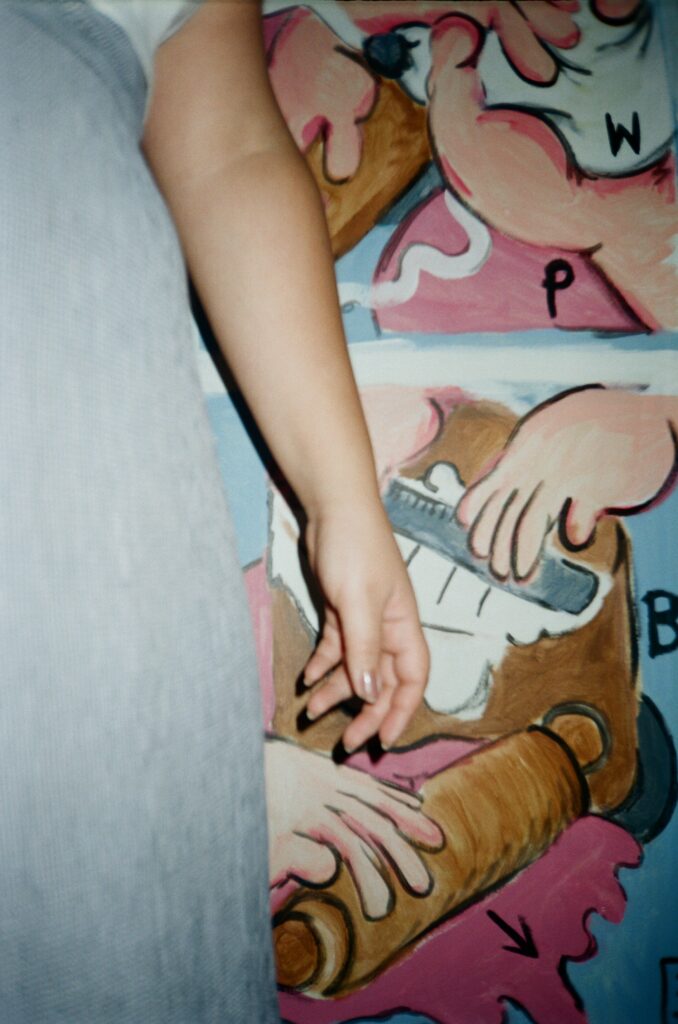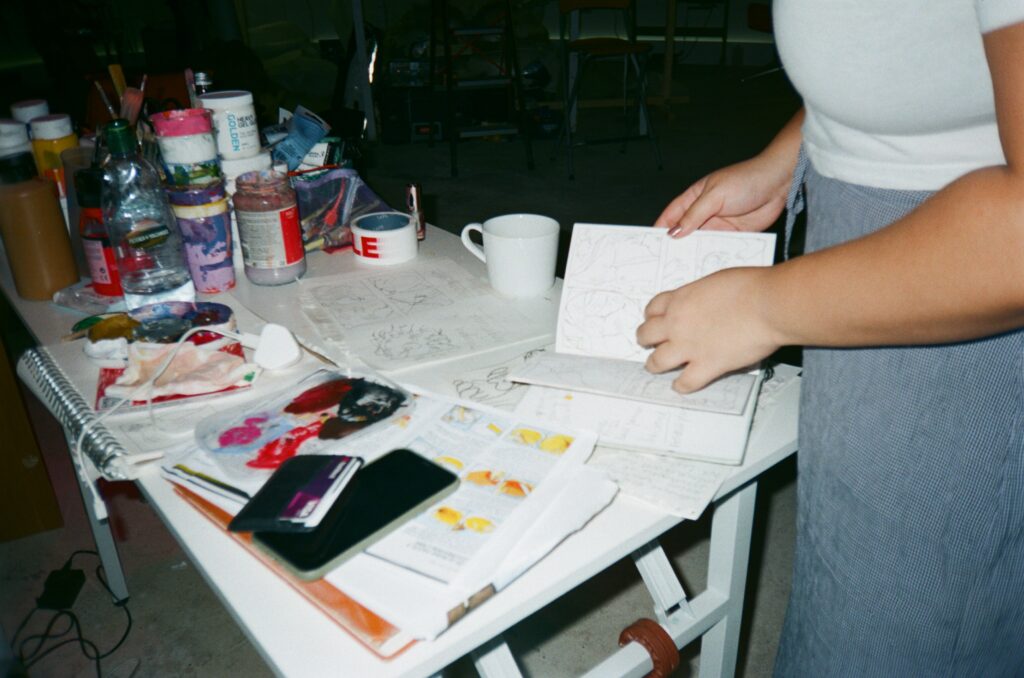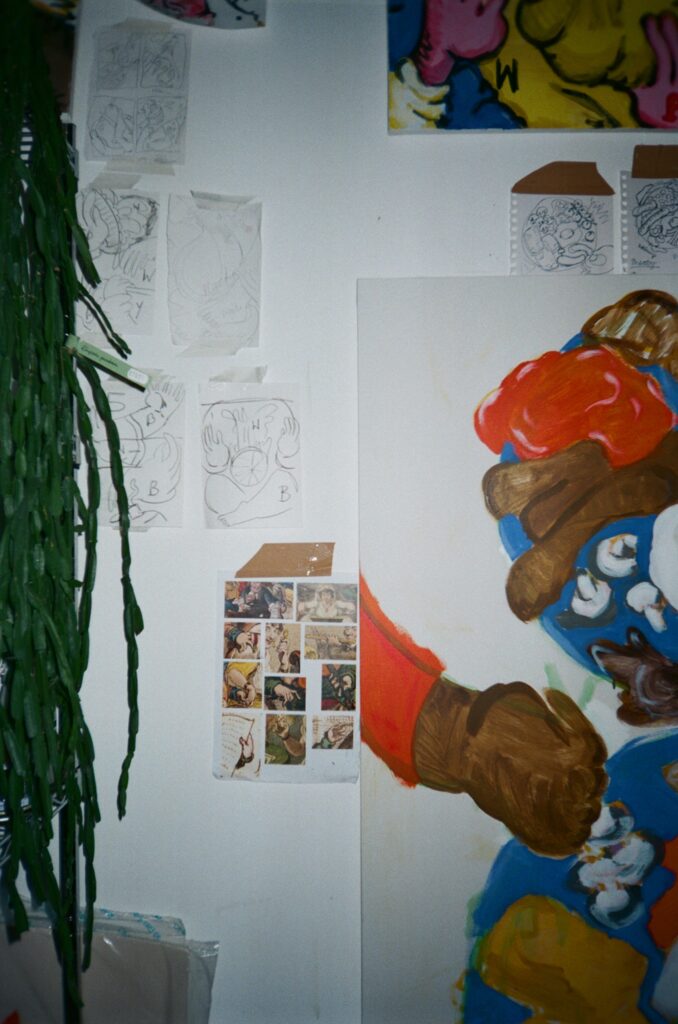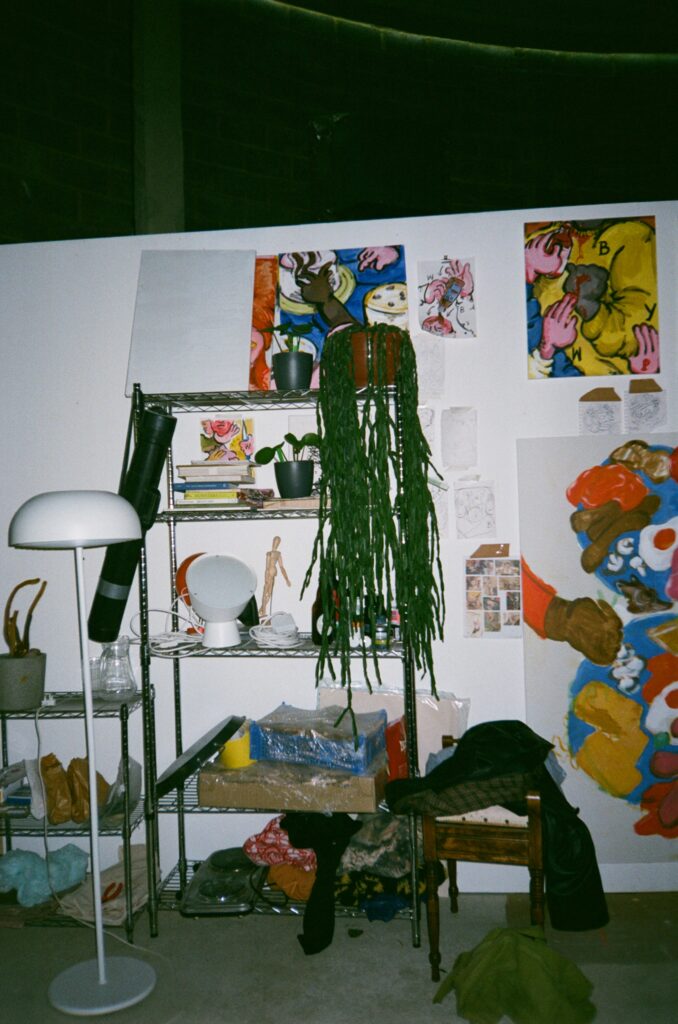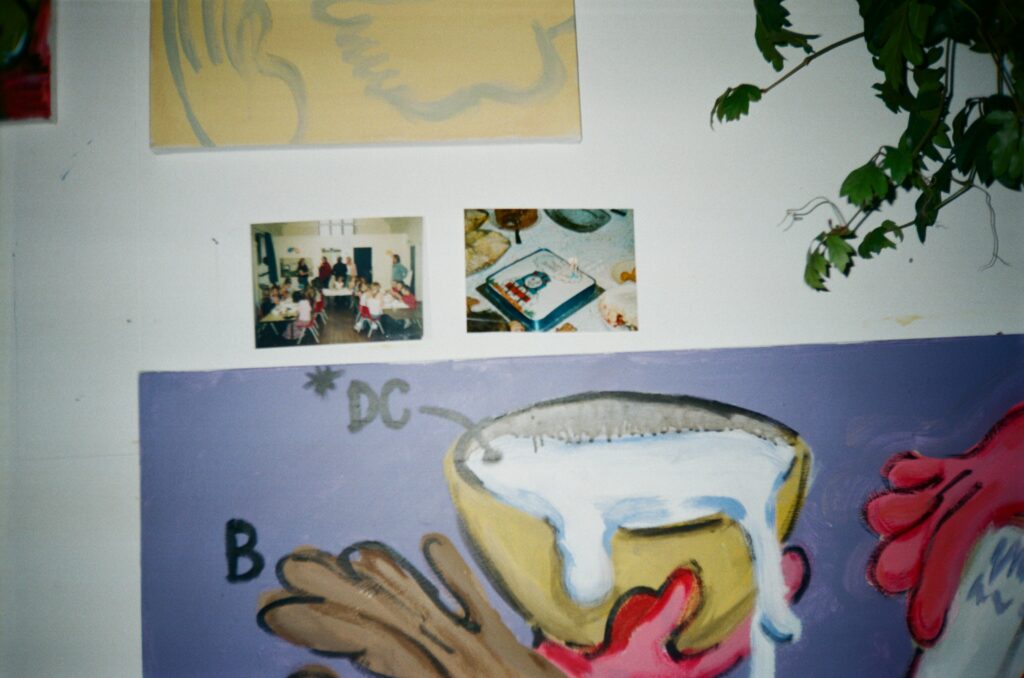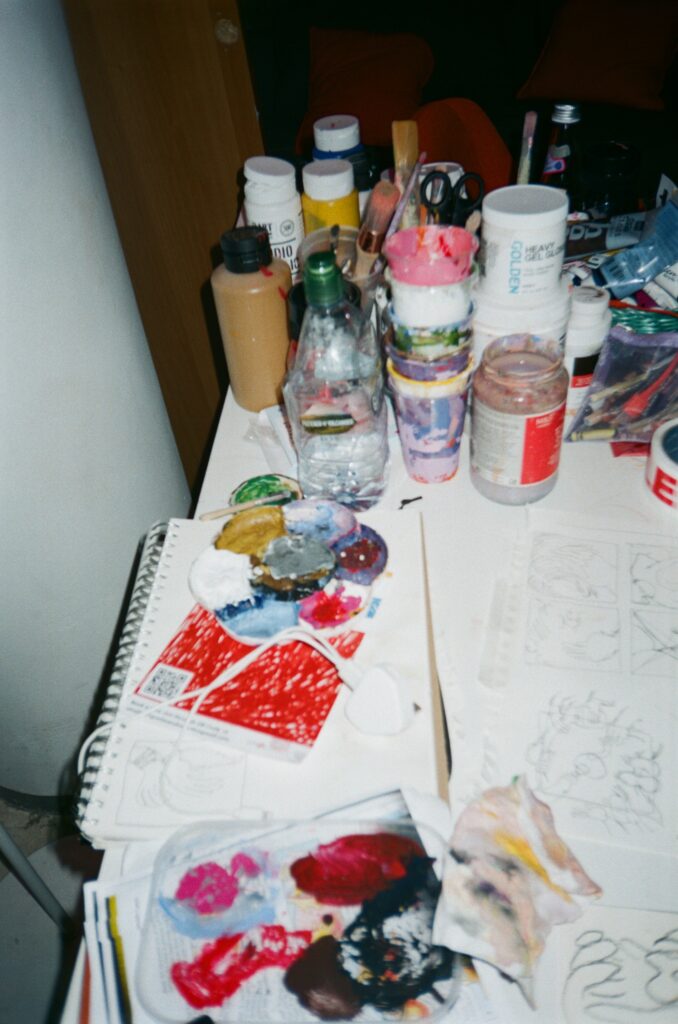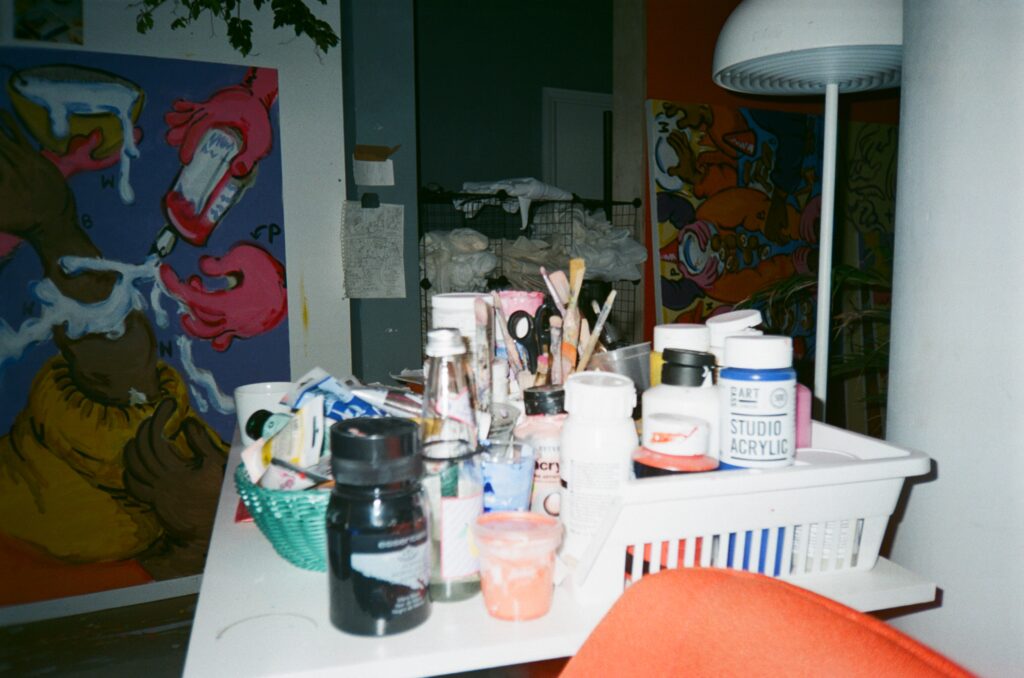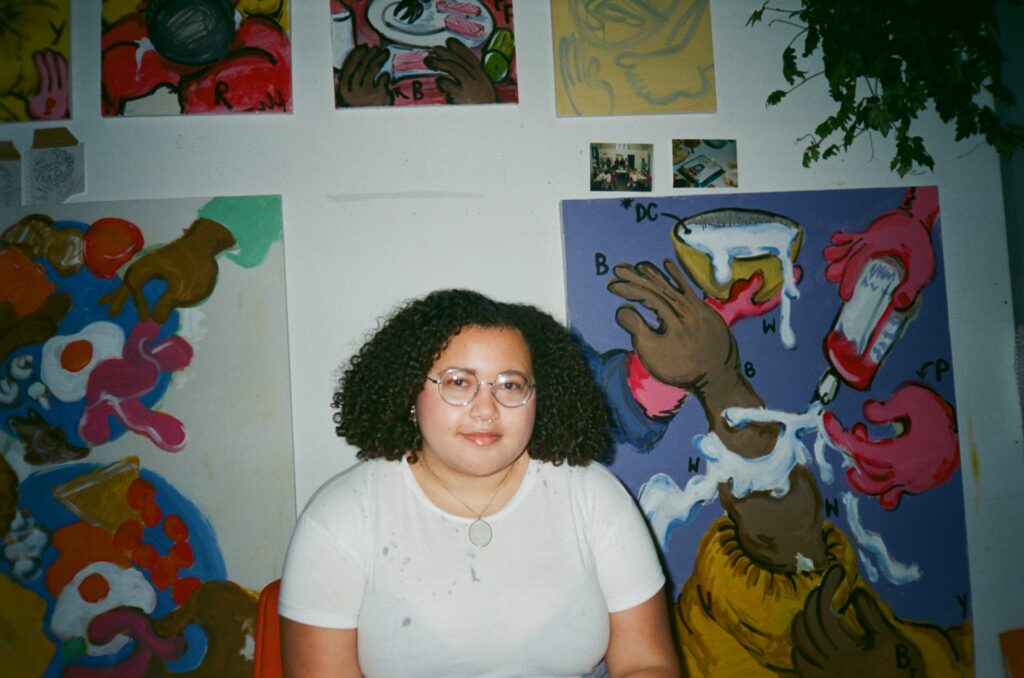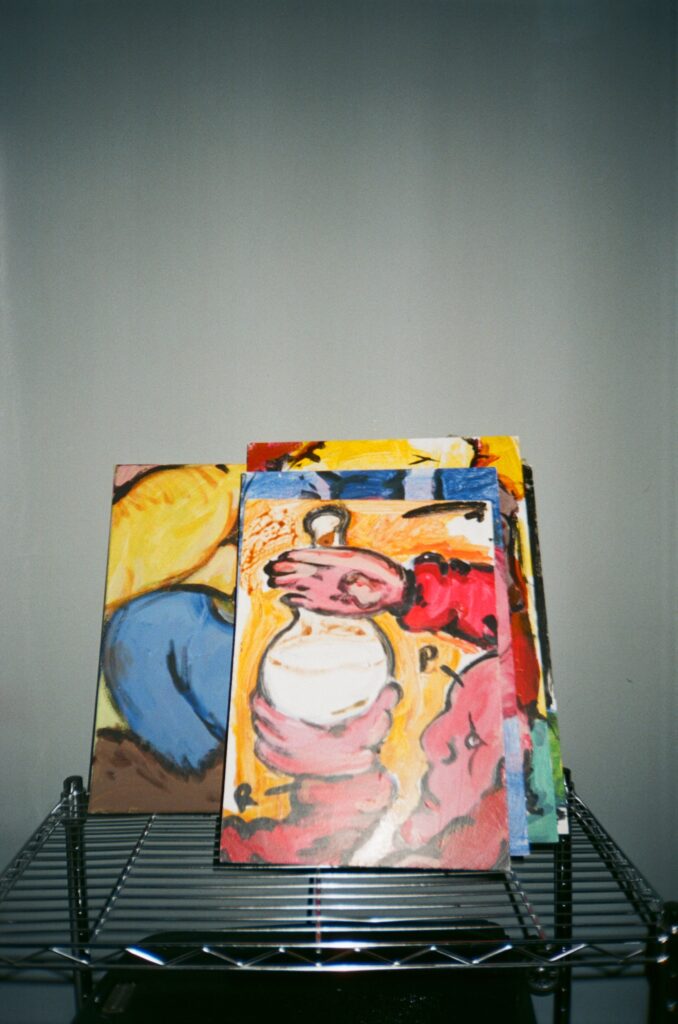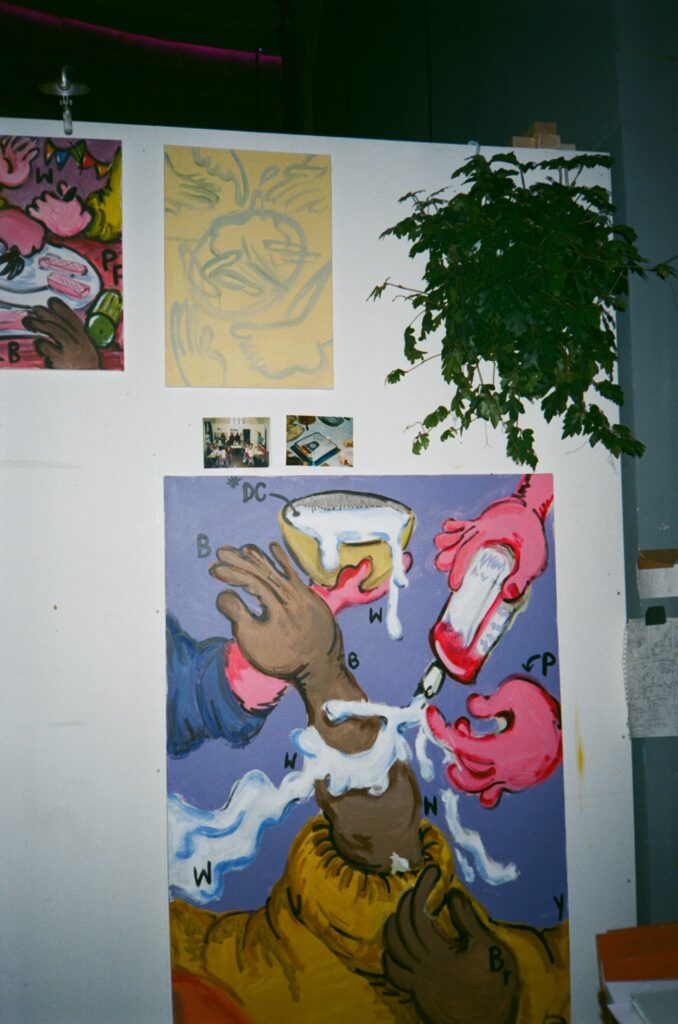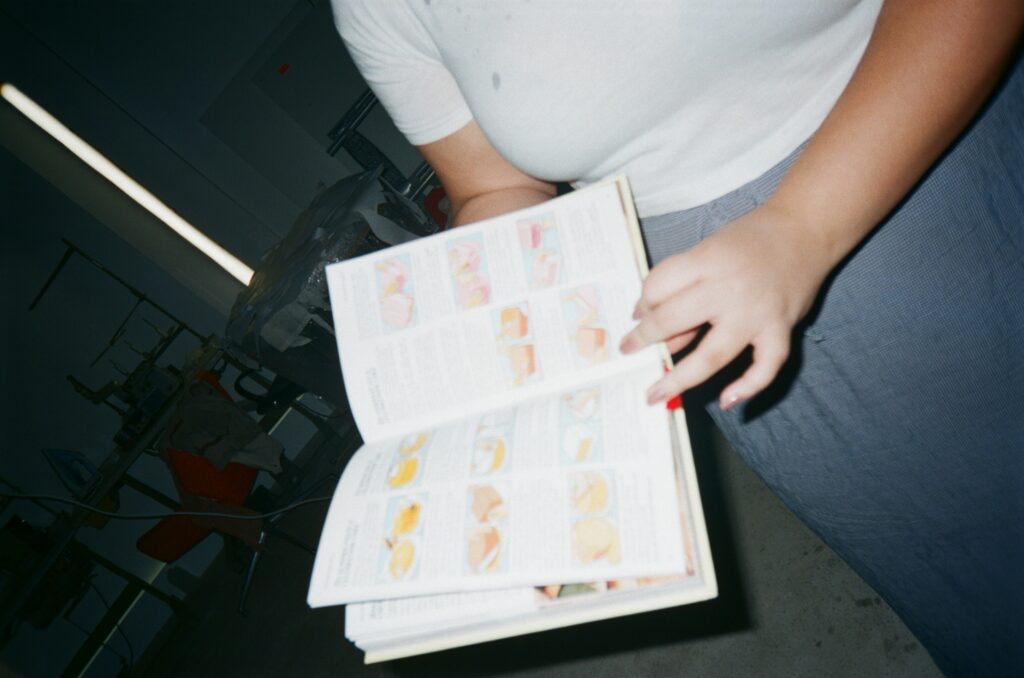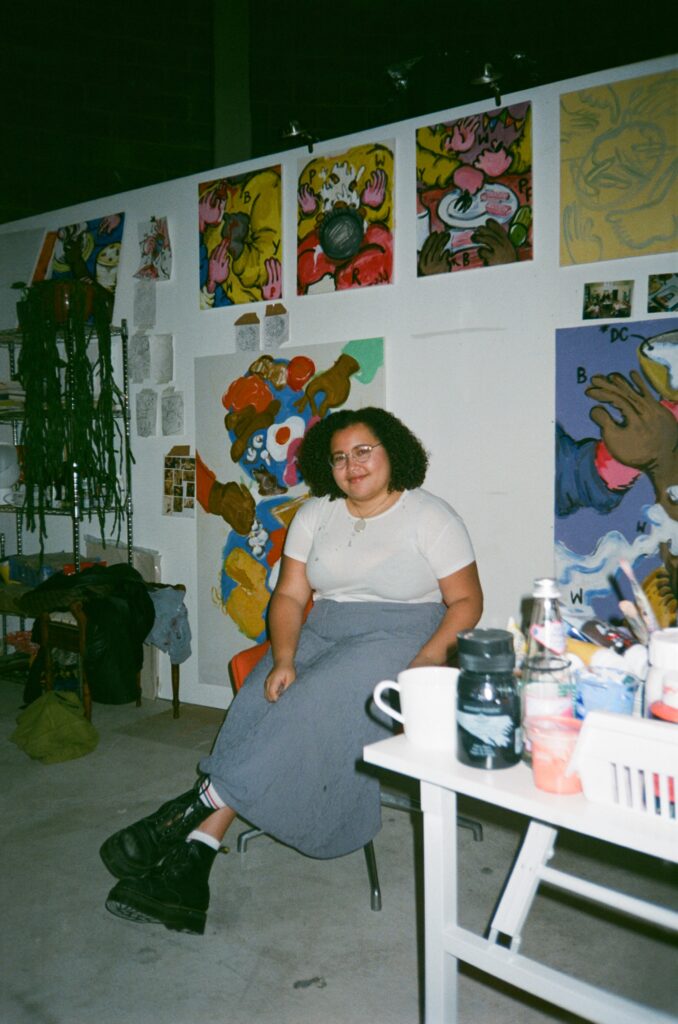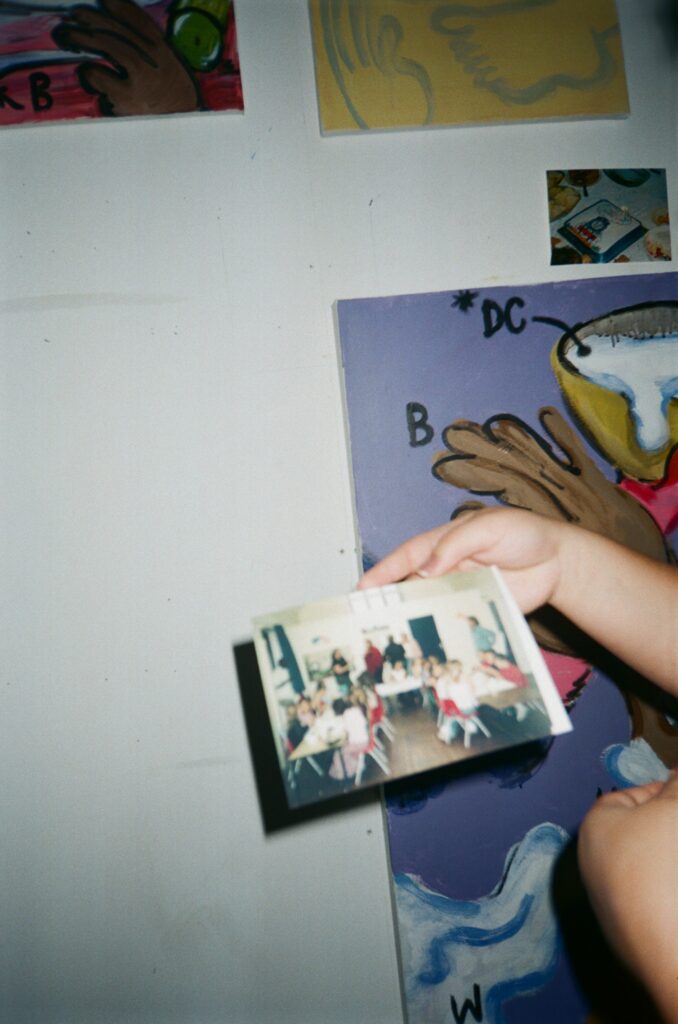















Racial discourse retold in caricature.
The adage ‘life imitates art and art imitates life’ came to mind on a visit to the shared White City studio of artist Olivia Sterling. Looking at the playful paintings pasted and propped against the white walls, Sterling appeared to have mirrored the sense of otherness encountered throughout her life. Having grown up in Peterborough as a woman of colour, the white faces of her hometown set a contrast. Where modes of marginalisation are referenced in paint, the studios’ contradictions follow. This location is offered by London-based, artist-run not-profit HQI, transforming vacant buildings into hubs for visual and recording practitioners. Intimations of its former function as a social club for the BBC are in fact still present, recalled in a series of neon lighting fixtures and a vacant DJ booth. For this artist, it is the first complex outside of the Royal College of Art that she may call her own and she claims it, basting the space with symbolic scenes that demonstrate perceptions of exoticization, othering and stereotyping. The plants and complementary palette of the artists’ work inspirit an uplifting sense of nostalgia, one befitting of the high ceilings of the turret-like structure. Saturated blues, pinks and yellows draw attention to the slapstick quality radiating from her paintings. The larger pieces on display lean against the MDF dividers and are punctuated by culinary mood boards and faded photographs from childhood birthday parties. These frame her latest series centred on our education of race told through icons of British cuisine. A brown cake with white icing, for example, alludes to binary notions of identity, a concluding nod that highlights the balance of tongue-in-cheek humour with the social commentary intrinsic to Sterling’s practice.
